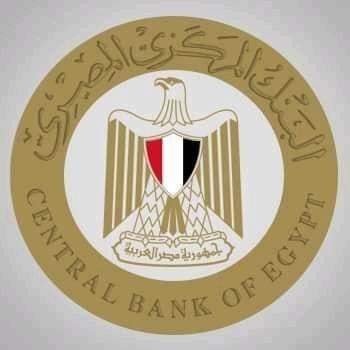A statement issued by the Central Bank has revealed that the balance of payments achieved a total deficit of $8.6 billion during the last fiscal year 2019/2020, and the deficit came entirely in the second half of the fiscal year. The Central Bank said that the balance of payments deficit in the second half of the fiscal year amounted to $9 billion due to the corona pandemic’s impact on the economy. The current account recorded a deficit of $11.2 billion, compared to a $10.9 billion shortage in the fiscal year 2018/2019, due to the decline in the service balance surplus and the high investment balance deficit. The figures published by the Central Bank revealed a decline in tourism revenues of $2.7 billion during the last fiscal year due to the closure that prevailed in the world’s economies and stopped aircraft movement. Tourism revenues reached $9.9 billion in the last fiscal year, compared to $12.6 billion in the previous fiscal year.
According to the balance of payments statement, the marked improvement in the non-oil trade balance and the increase in current transfers without compensation have contributed to mitigating the Egyptian economy’s shock.
The Central Bank statement claimed that the Egyptian economy had absorbed the impact of the financial shock arising from the corona crisis, as the current transactions of the Egyptian economy with the outside world witnessed stability in the level of deficit. The statement of the balance of payments indicated that the impact of the corona crisis strongly affected the behaviour and movements of capital around the world, which led to huge financial flows out of global financial markets.
Why?
The Central Bank’s statement showed the persistence of the deficit in the balance of payments in Egypt, which has been inherent in the economy during the past financial years, despite the increase in government support and the obtaining of billions of loans and grants. At the end of July, Central Bank data showed that the Egyptian balance of payments was completely deficit during the first nine months of the previous fiscal year. In a statement at the time on the performance of the balance of payments, the bank said that the balance of payments recorded a total deficit of $5.1 billion in the first nine months of the last fiscal year.
The Central Bank indicated that the capital and financial account of the Egyptian balance of payments during the third quarter of the last fiscal year recorded a net outflow of about $1.1 billion. During the fiscal year 2018/2019, the overall balance of payments achieved a deficit of $100 million, which means that the deficit phenomenon has become chronic regardless of the corona pandemic.
Economists believe that the deficit continues to rise due to the increase in the volume of imports versus exports and Egypt’s dependence on importing 60 per cent of its needs from abroad, especially the main components of the industry. In this regard, Dr. Salah el-Din Fahmy, professor of economics at al-Azhar University, says that the trade deficit is the difference between the value of exports and imports, explaining that Egypt has a more significant increase in imports compared to exports. Fahmy added that, in theory, when the Egyptian pound was floated in 2016, Egypt had a greater opportunity to encourage and increase exports.
This was explained by the fact that, according to the Egyptian viewpoint, the foreign commodity becomes expensive, and Egyptian exports to foreigners are cheap. Still, in practice, this did not happen, according to his statements. Fahmy clarified that the supply of Egyptian goods is not sufficient for both export and the domestic market, and thus imports increased and caused a deficit in the trade balance.
Fake numbers
According to economists, in October 2018, the Central Bank of Egypt published fake numbers suggesting that there is a balance of payments surplus of $12.8 billion. Experts explained that the truth is that there is a deficit because the method of preparing the balance figures considers that foreign loans are on the revenue side, and they are, but they are not net self-revenues, but are obligations of the state. The balance of payments consists of three sub-scales. The first is the balance of trade, which is related to commodity trade, and the second is the balance of services concerned with trade in services such as tourism, transport, and travel services.
Among the most prominent items of the services balance are the revenues of the Suez Canal, while the third balance is for the capital and financial balance, which includes several items, the most important of which are foreign investments and foreign loans. The Egyptian economy suffers from a budget deficit and the government’s reliance on borrowing from abroad, and the flight of foreign investment, which is reflected in high living costs.





Recent Comments